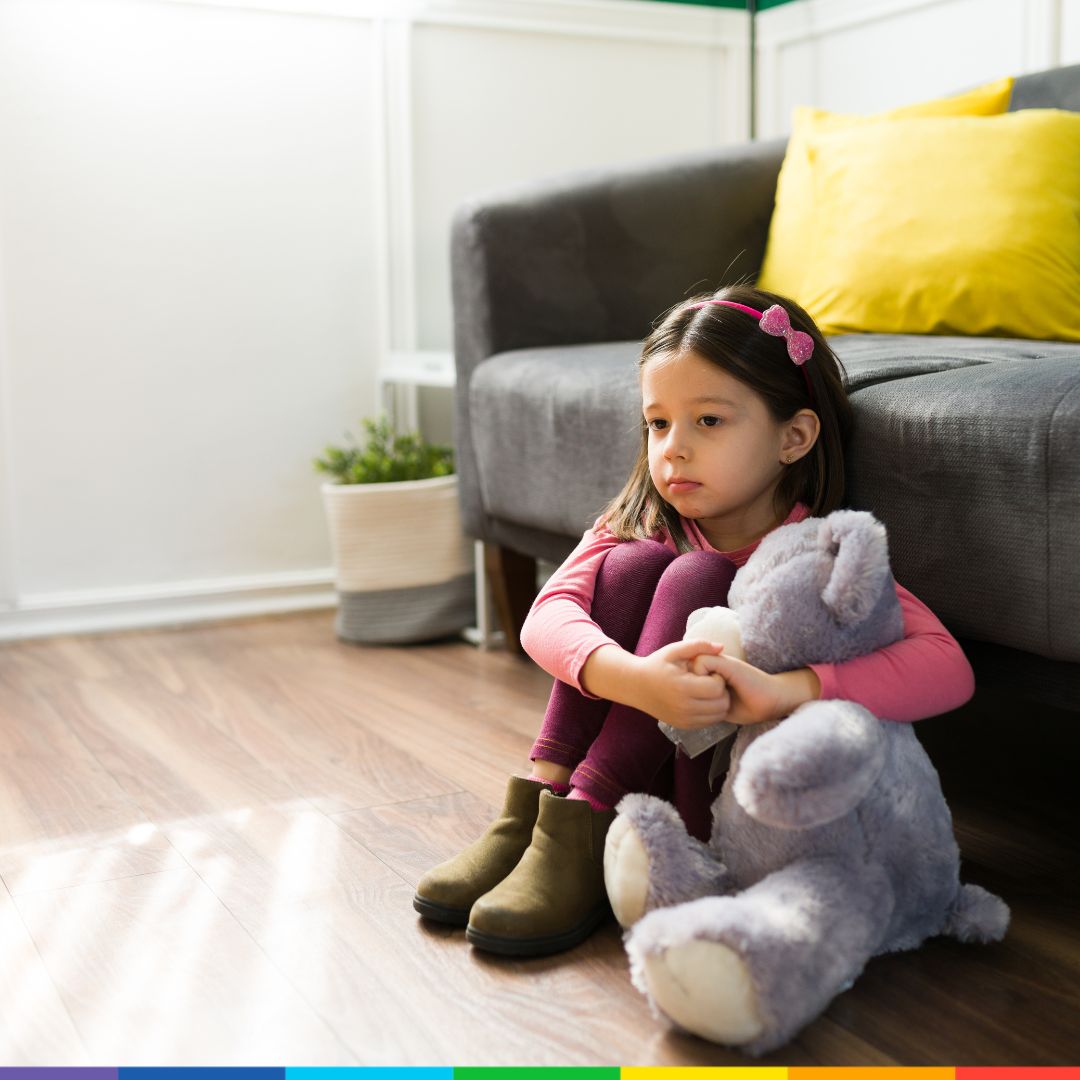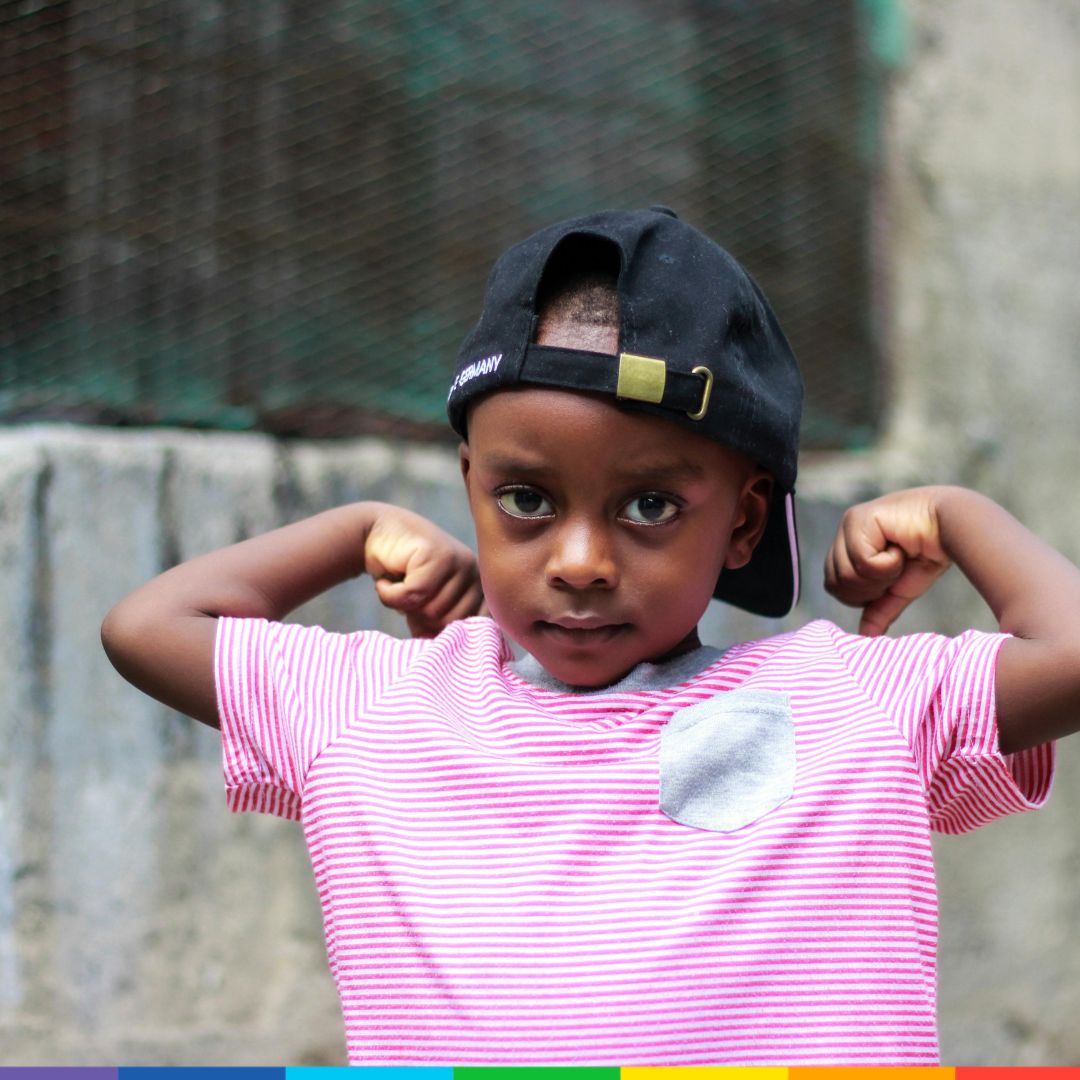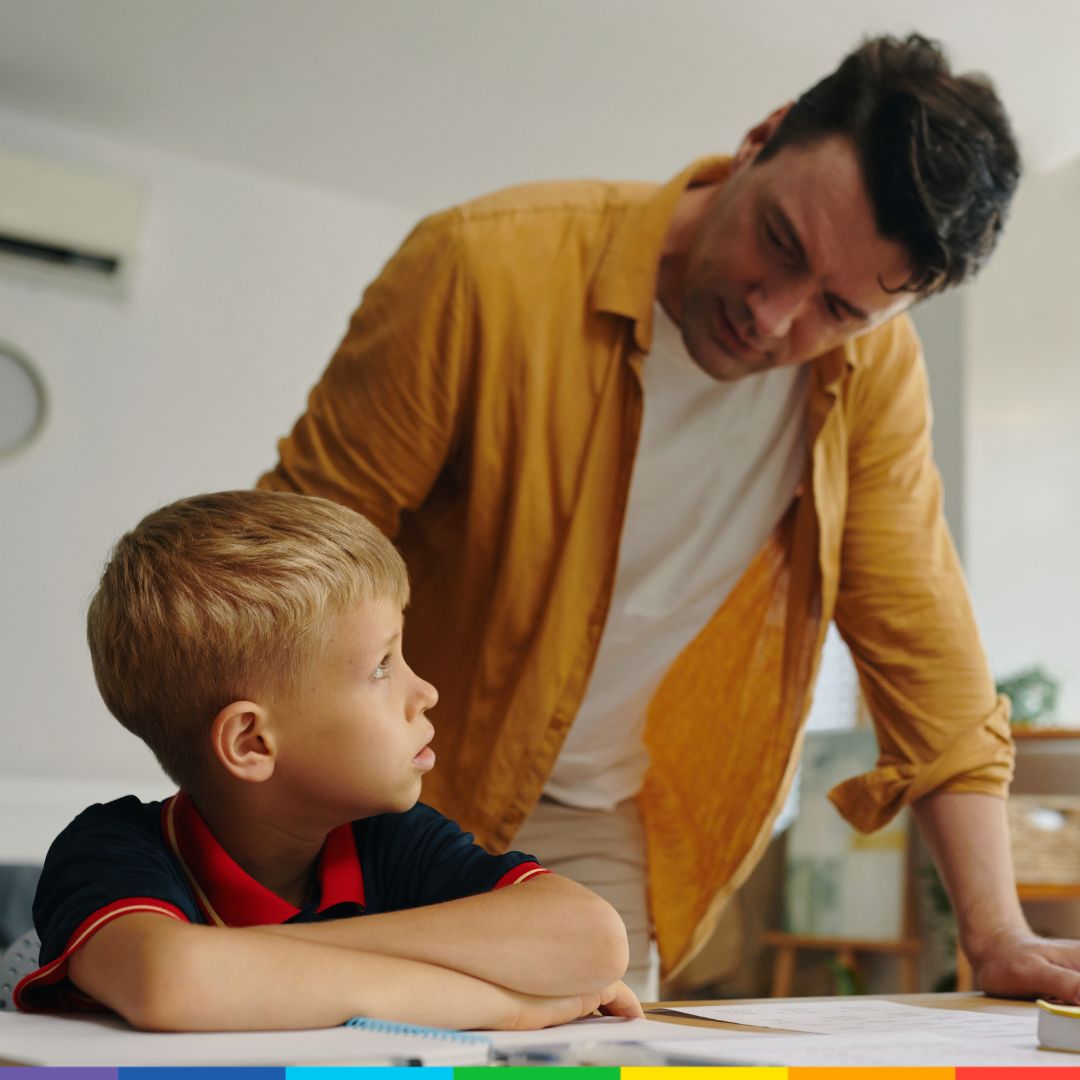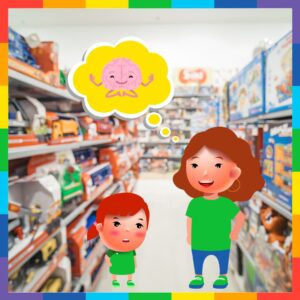
Parenting Tips
Mindful Parenting: How to Reap the Benefits?
January 14, 2025
Related
Topics

Hey
-

Big Feelings – Helping Kids Handle Them : Best Tips 101
February 25, 2026
-

How to Build Confidence in Shy Kids: 12 Evidence-Based Tips
January 26, 2026
-

How to Teach Emotional Regulation to Kids (Aged 3–8)
January 15, 2026
-

5 Ways to Nurture SEL at Home (Fun Activities)
January 1, 2026
-

How Early Social Emotional Learning Help in Successful Life?
December 11, 2025
Ready for more?
Hey
Sign up for Rainbow Kiddies newsletters for more stories and updates
While researching mindfulness practices for kids and families, I stumbled upon the concept of mindful parenting too often. Intrigued, I delved deeper, realizing how crucial this approach is for creating a safe and nurturing environment for children. Today, I am sharing my learnings and experiences with mindful parenting to help others embrace this meaningful practice.
In stressful situations parents’ reactions are often driven by their emotions. Dr. Dan Siegel who is a clinical psychologist states that we don’t really think how the kids are perceiving us in such situations. If unchecked, our reactions while under stress can scare our kids and also model their stress response as adults. When we pause and think before we respond, we are teaching our kids the right way to respond too.
One thing I have tried to do with my kid after I started learning psychology is to listen to her without judging. This encourages her to confide in me about whatever topic it might be. When I read about mindful parenting I realised that, that is just one portion of it.
There is a lot more to it that we can do as parents to make our kids feel safe and secure in our environment. That is what mindful parenting is all about – slow down, listen fully, reflect, have empathy, do not judge, validate feelings, be compassionate and spend quality time together. This further ensures a safe environment for everyone in the family. In addition you reap benefits like reduced stress for parents which reflects in the kids’ behaviour and stress levels too, better bonds, overall emotional health/ well-being, and so on.
Let us see how it all sounds in a more formal way now.
Key Components of Mindful Parenting
Mindful parenting is an approach that encourages parents to bring intentional, non-judgmental awareness to their interactions with their children. By focusing on the present moment, parents can foster healthier relationships and promote their children’s emotional and psychological well-being.
According to Duncan et al. (2009), mindful parenting encompasses five essential elements:
- Listening with Full Attention: Engaging completely with your child during interactions, minimizing distractions to understand their needs and feelings. This also tends to reduce our use of expectations as parents.
- Non-judgmental Acceptance of Self and Child: Embracing both your own and your child’s emotions/ traits without criticism, hence fostering a supportive environment. This also helps to reduce unrealistic expectations about the child’s attributes. Further it also reduces self-directed concerns of the parents.
- Emotional Awareness of Self and Child: Recognizing and understanding the emotions present in both you and your child. This aids in empathetic responses. This further helps to reduce dismissal of child’s emotions. In addition, it reduces disciplining that arises from the negative thoughts of the parents.
- Self-Regulation in the Parenting Relationship: Maintaining control over your reactions, especially during challenging situations, to model appropriate behavior. This tends to reduce overreactive responses to the child’s emotions or behavior.
- Compassion for Self and Child: Approaching interactions with kindness and understanding, reinforcing a loving bond. This again reduces the self-blame which arises when parenting goals are not achieved. This helps us forgive ourselves more often in such situations.
Why is Mindful Parenting Important?
Parenting can be challenging, especially in stressful situations like tantrums or misbehavior. Mindful parenting helps parents stay present and emotionally balanced. This approach reduces harsh reactions (like shouting) and encourages more constructive responses that guide children positively.
As per Dr. Amy Saltzman, who is a holistic physician and mindfulness coach, the greatest source of stress for children and teens is parental stress. This is contagious. If we can tone it down even a bit, that would make a world of difference to our kids.
According to Dr. Goldstein, the act of naming the situation that you are in helps reduce activity in the brain’s amygdala—the fear and stress center—while activating the prefrontal cortex, the area responsible for awareness and thoughtful decision-making. This shift allows you to respond calmly and effectively, even during a parenting storm. When the parents keep calm, the kids tend to feel that they are in a safe environment and the assurance of being in a secure place helps them thrive.
Significance of Self-Awareness
Mindful parenting begins with practicing mindfulness yourself as much as for your child. When you become more self-aware of your emotions, it makes it easier to accept your imperfections with compassion rather than judgment. This will help you model emotional regulation, conflict resolution, and thoughtful decision-making in your children. This self-awareness will help you empathize with your child’s thoughts and feelings also. By understanding the emotional context behind their behaviour, you can identify the root causes and develop effective solutions that address all the contributing factors. Ultimately, this approach allows you to create a parenting style that fits your child’s/ family’s unique needs.
Through mindfulness, parents can let go of habitual, ego-driven responses and focus on the enduring nature of their relationship with their child. This practice allows them to create meaningful connections, fostering a deeper understanding and bond with their children while cultivating a calm, supportive family dynamic. Mindful parenting isn’t just about the present moment—it’s about building a strong, lasting relationship for the future.
Implementing Mindful Parenting Practices
To incorporate mindfulness into your parenting, consider the following strategies:
Be self-aware
Be aware of your ‘hot-spots’ or emotional triggers. At such moments we tend to be less emotionally available. This might be caused by stress, feeling overwhelmed, tired, clueless, etc. The triggers could also be preoccupation with our marriage or work.
Emotional triggers might also be situations which take you back to your childhood – when you elicited a bad reaction from your parents (for bad marks, performance, or for misbehaving) or you had a bad experience (fell off something in the playground or got attacked by an animal). When you are subjected to such situations as a parent now, your reaction tends to be controlled by your earlier experiences. So, it is always good to be aware of such triggers and possible reactions, which would be unhelpful for your kid.
I am scared of most animals, especially dogs and cats. I love watching them and find them uber cute, but the moment they are around I start feeling scared and anxious. My kid knows about this and I ensure that this trigger of mine does not restrict her from being close to animals. I encourage her to spend time with animals, but she totally respects the fact I might not be able to do the same.
Pause Before Reacting & Reflect on Emotional Responses
Take a deep breath before responding to your child, especially during conflicts. Slow down, take time to understand the situation, contributors, circumstances, etc. When you slow down to take a deep breath or take in the situation, it gives you time to think clearer. Hence, your response will also tend to be better.
Take moments to assess your emotional reactions before responding, ensuring your actions align with your parenting values. Be aware of how your mood or stress levels might affect your interactions with your child.
Practice Active Listening
Dedicate time to fully engage with your child, making eye contact and responding thoughtfully to their concerns. Ask more open-ended questions so they will not feel forced to change their responses to satisfy you. Hear them out fully without interrupting or coming up with quick solutions, suggestions or references from your own experiences. When you give them time to finish what they have to say, they will know that you have fully understood their thoughts and feelings. So, they will feel more confident about your response being a good one.
Acknowledge Emotions
Validate your child’s feelings even if you don’t agree with their behavior (e.g., “I see you’re upset because the swing in the park is broken”). Validating and acknowledging their emotions makes them feel heard and understood. They will realize that you are interested in their well-being. This will help them trust you more and also confide in you when they are in any bad situation. This way you can keep them safe from any unhealthy or unsafe behavior, relationships or even substance abuse. To some extent you will even be able to get them quick help when they are going through tough times.
Show Compassion
Treat yourself and your child with kindness, even when things don’t go perfectly. Being aware of your own imperfections and that of your child’s helps here. Like we said earlier, self-awareness is always so important. If you have this one thing in place, most of your issues can be taken care of will a little less effort.
Create Mindfulness Routines
Introduce simple mindfulness exercises, such as deep breathing or meditation, into your daily family activities to promote a calm environment. Have a look at this whole list of mindfulness practices that we have shared here. Choose whatever suits you and your family/ kids.
Practice at good times too
Practice mindfulness on any usual day, when all is good. This will set the stage for you and your child to be more mindful at tough times too. If you introduce such practices to kids for the first time when they are under stress or not in a good mood, it might backfire, rather than help. So gradually add it into their regular playtime or interactions with you. And when things don’t work you can get them to use one of these mindfulness techniques to relax and cope.
Get support
It will be difficult to consistently be mindful. It is only human to make mistakes. Meanwhile, when you do, make sure that you repair it too. And also split household chores and other responsibilities with whoever makes sense, get paid support or support of well-wishing family members to make your journey a little easier.
Benefits of Mindful Parenting

Research indicates that mindful parenting positively impacts both parents and children:
- Enhances Parent-Child Relationships: Mindful parenting practices are associated with stronger emotional connections, improved communication and satisfaction between parents and children. Children feel heard, valued, and respected, which strengthens emotional bonds.
- Reduces Parenting Stress: Engaging in mindfulness can decrease stress levels in parents, leading to more effective and compassionate parenting. This creates a more peaceful home environment also.
- Improves Child Outcomes: Children of mindful parents often exhibit better emotional regulation, empathy, problem-solving and social skills, contributing to their overall well-being. This sets the foundation for better social and emotional skills in adulthood.
- Other benefits: Reduces symptoms of hyperactivity, lesser aggression, lower feelings of depression and anxiety, promotes parental involvement and makes it feel comparatively effortless.
My Trysts with Mindful Parenting
Clean your Plate Dilemma
One day we had guests at home while my little one was having her dinner. After a while she said she was full, but there was still some food left on her plate. Immediately the guests started forcing her to finish everything on her plate and my kid started getting annoyed. I was in a dilemma. I have never forced her to finish everything on her plate. If she says that she is full I know that she is being truthful. I make it a point to not force her, especially because I know when I must have served a little extra.
My guests were unmanageable. It looked like they were trying to help me out, but it was not helping a bit. My calm child was at the verge of breaking into tears hearing their examples and anecdotes. I did not want to offend the guests, but I had to save my child from that moment of frustration too. Finally, I took a deep breath and clarified to my guests how we functioned, in a very polite manner.
I asked my child to leave the plate near the sink and wash her hands. She gave a peck on my cheek and happily fled with it. Of course that was her little way to thank me. The guests seemed a little unhappy. They stressed that I should not encourage wastage of food. Little did they know that it was one of those days when I had served a little extra to see if her capacity for food intake had changed. Well, my child was convinced that I had her back, and I guess that was what mattered more to me at the moment.
Querying at Inappropriate Places
Yet another day, we were in a bus and she was asking me why there were so many people belonging to different ethnicities in the bus. Considering that we live in a global world, if you think about it, it was only natural that the crowd was diverse.
Now when she asked so loudly, I felt a little awkward and did not know how to handle the situation. Meanwhile the aunty sitting in front of us was kind enough. She told me that your child had asked a genuine doubt. She is too small and is trying to understand the world around her. There is nothing wrong with kids asking such questions, and that I should answer it as clearly as I can.
That was a cue for me to explain her world to her right away. So, I told her a quick story about the history of Singapore, the diversity here, and so on. I also tried to emphasize that despite all the differences, humans around the world are very much similar. Their skin color, mother tongue and ways of dressing might be different, but deep inside we are all constituted of the same essential components. So, she must be good to all, be impartial and kind.
If I had stayed awkward thinking about what other people in the bus will think, she would have thought that she had asked a wrong question. It could have affected her self-esteem. All thanks to the aunty who supported me in my journey and helped clear my mind that day.
Food Spilling Fiasco
Once upon a time when little one was just 2 years old and we had a guest at home, she pushed her plate from atop the table. The food splashed all over the floor, on the table legs, chairs. It was a mess. The guest looked at me as if to ask, “Do you even know how to raise a kid?”. Or maybe that was what I assumed. I started cleaning up and also gave her a good scolding.
She seemed more interested in looking at the splashed food rather than listen to me. I thought scolding would make a difference, but she did it again – with milk, yoghurt, snacks – anything that she had not tried spilling already (never over the table again, but on the sofa, on the floor) – on several other occasions.
Now when I think about it I feel I should have paused to have a look at her amazed face every time this happened. Maybe she was just trying to figure out how these things worked. She was scared by my reaction every time, but that never really changed her style of experimenting. I thought she was checking my limits. In retrospective, I know she was only trying to figure out material physics in her own way maybe. 😀
Seriously, if only I had paused and tried to understand her perspective, I could have just peacefully talked it out with her and maybe that would have helped us both better. This is one thing I regret. Now she has outgrown that stage, and me too. Every time I am mindful now, I wish that she doesn’t remember my old stress responses. I hope she learns more from my new informed responses.
Almost There!
These were some of my situations which got saved by mindfulness and support from some other mindful people. And the last one of course is something I regret. I could have done a better job if I had known anything about mindful parenting back then. If you have any such experiences please share them in the comments so we can all learn from each other.
Time to Wrap it Up!
To sum it all up, mindful parenting offers a pathway to nurturing a compassionate and understanding family dynamic. By integrating mindfulness into daily interactions, parents can enhance their relationships with their children and support their emotional growth. Start small, take help, slow down before you respond, accept imperfections, be self-aware, be compassionate, and enjoy your parenting journey.
Happy parenting!
Sign Up for your Free Parenting Guide: “10 Everyday Ways to Raise an Emotionally Strong Child”




